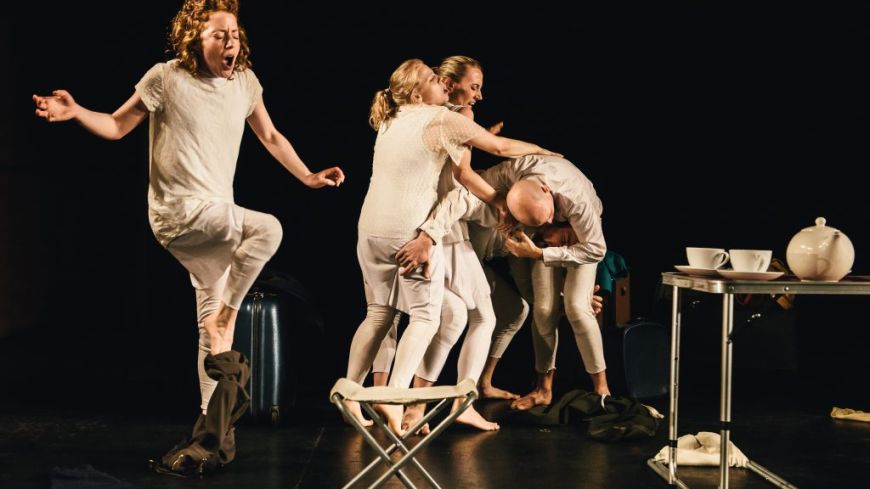
There’s no question that ‘The End of Things’ has huge ambitions. Company of Wolves explore the variousness and finitude of the human condition with, at times, a remarkable delicacy and exactitude.
‘The End of things’ opens in what might be an air or railway terminal, where the five performers appear to await an arrival. They begin to encounter one another, to flirt, to form couples, become estranged and then engage with others. There’s a delicacy and naturalness here that feels unforced, yet is clearly the result of much observation, development and rehearsal.
This is a relatively brief sequence in a performance of over an hour, yet is perhaps the most deservedly memorable part of it. Although it can feel at times a little voyeuristic, it nevertheless offers a charm which the later sections of this piece seem to lack.
Moving on, an orgiastic, almost bacchanalian celebration of physical sensuality breaks down into repulsion and ultimately a search for oblivion. The quality of physical expression is never less than immaculately conceived, but somewhere along the way the necessary narrative connections seem to be missing, at least they were for this reviewer.
Yet it’s difficult to suggest an alternative path Company of Wolves might have taken, and their performances, both individually and collectively, have an integrity and purposefulness that is hard to fault. Their interpretation of various stages of existence and ways of being are both well observed and communicated.
Nevertheless, for this reviewer at least, a niggle remained nagging. The ambition of Company of Wolves is obvious throughout, but the sheer complexity, diversity and incommunicability of actual human life ultimately defeats representation. Some form of acknowledgement of this might actually have raised the stakes in more thought-provoking ways, and saved us from an ending that appeared to capitulate to the sensibilities of an age that is passing.
31 January

